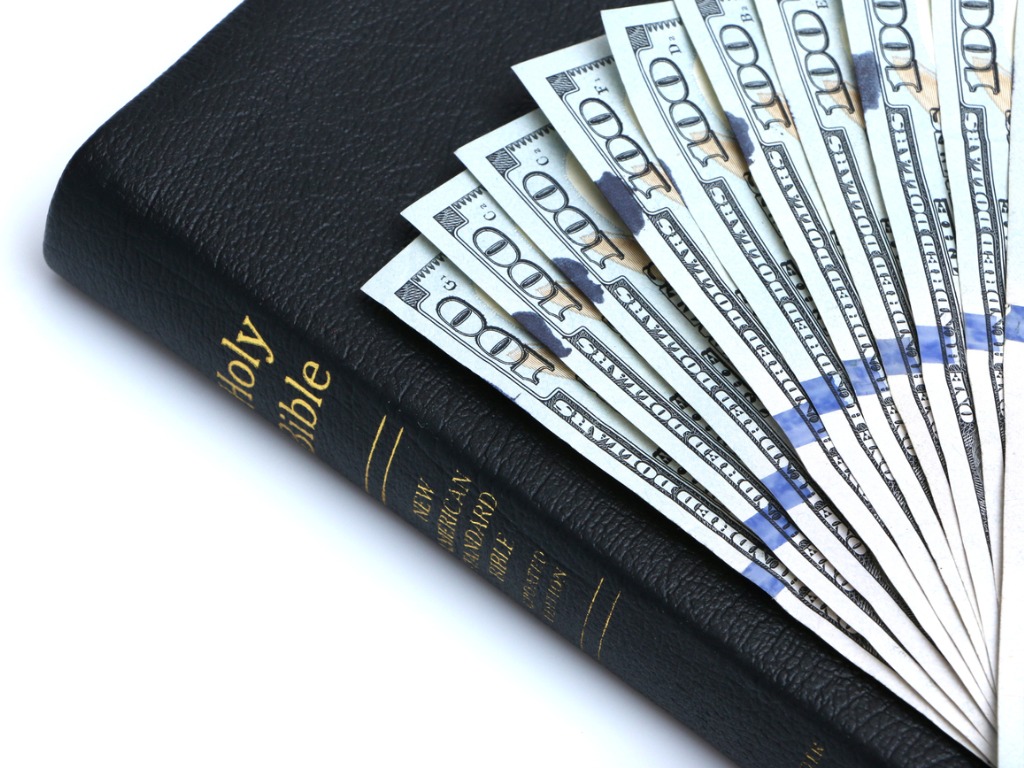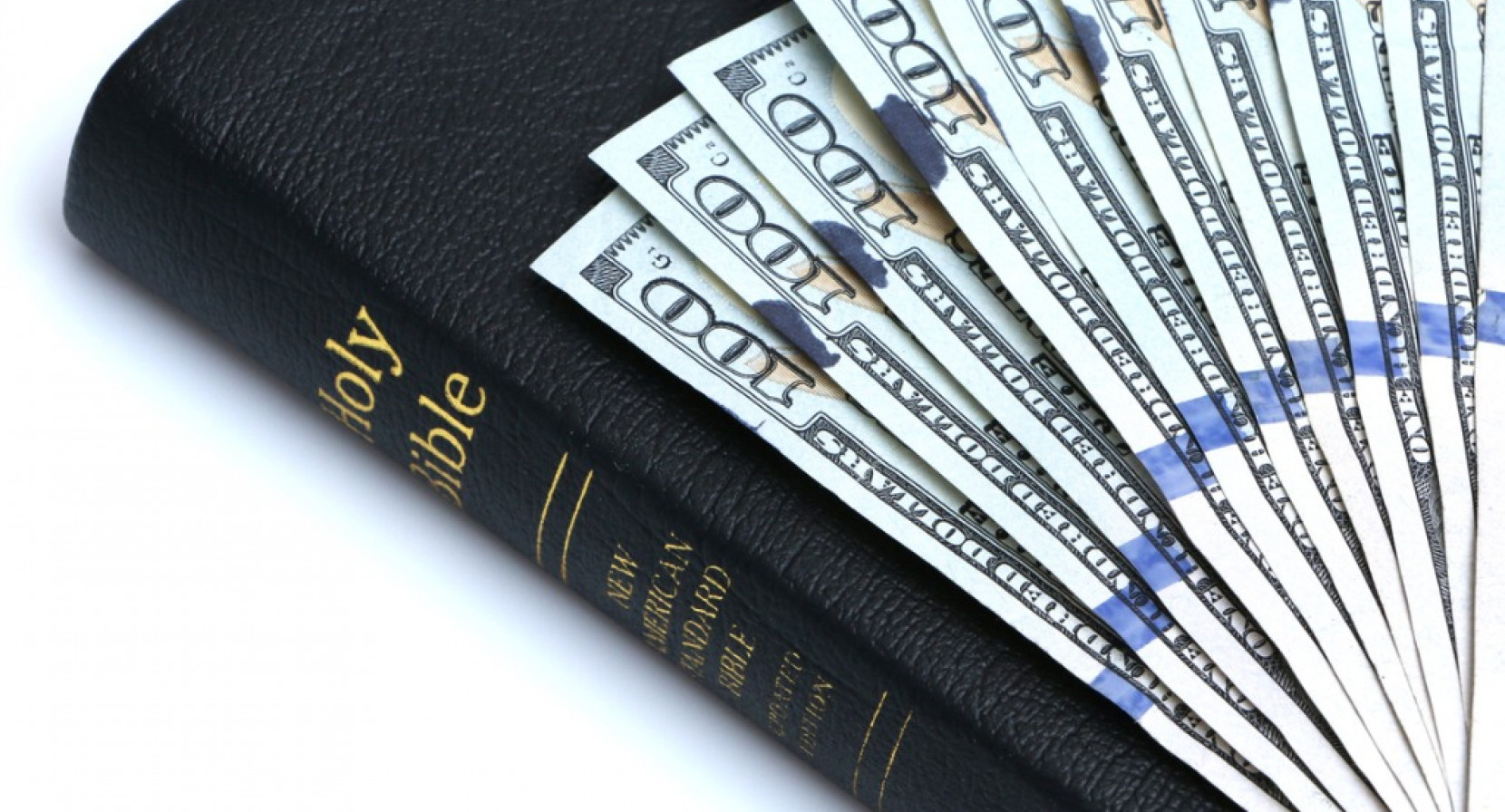The Bible has a lot to say about money. With more than 2,350 verses devoted to it, it’s one of the most heavily discussed topics in Scripture. Obviously, all of those verses are important, or they wouldn’t be included in the canon. But if you were trying to boil all of them down into a workable starting framework, which specific verses would you choose?
Here’s my attempt to answer that question.
God owns it all.
Psalm 24:1 says, “The earth is the LORD’s, and everything in it, the world, and all who live in it.”We are stewards with management responsibilities.
1 Corinthians 4:2 states, “Moreover, it is required in stewards that a man be found faithful.” (The Parable of the Talents in Matthew 25 and Luke 19 is probably the clearest picture Scripture offers of the “God as owner–us as stewards” dynamic.
It’s pivotal that we start with these first two points, because a proper understanding and embrace of God’s ownership and our stewardship are the twin rails everything else Scripture teaches about finances run on.
It may seem odd to group these next three points, but as we’ll see, they work in harmony.
God promises to meet our needs.
Philippians 4:19 places high on the “favorite Bible verse” rankings, stating “And my God will meet all your needs according to the riches of His glory in Christ Jesus.”We demonstrate our trust in Him through giving.
A common thread ties Old Testament tithing commands such as Malachi 3:10 (“Bring the whole tithe into the storehouse, that there may be food in my house. Test me in this…and see if I will not throw open the floodgates of heaven and pour out so much blessing that there will not be room enough to store it.”) to New Testament generosity principles as in Luke 6:38 (“Give, and it will be given to you. A good measure, pressed down, shaken together and running over, will be poured into your lap. For with the measure you use, it will be measured to you.”).
The “big picture” message God was communicating to both the Old Testament Jews and New Testament Christians is the same: Trust me — I’ll take care of you. More on this crucial trust issue in a moment.Money is a test of our allegiance.
Matthew 6:24 says, “No one can serve two masters. Either you will hate the one and love the other, or you will be devoted to one and despise the other. You cannot serve both God and money.” Clearly, God intends this to be “either/or,” not “both/and.”
The underlying issue behind all of the tithing/giving Scriptures in the Bible is trust. God’s challenge to His people — then and now — is simply, “Do you trust me?” In both the Old and New Testaments, God makes this question intensely practical by making the test a physical one involving our money. Do we believe Him when he promises to care for us well on 90% (or less) of our income if we will offer up the other 10% (or more) to Him? For many, giving is where the rubber hits the road and our faith becomes uncomfortably tangible.
The issue of trust is why these three points are inextricably linked. There’s 1) the promise of provision, 2) the practical test God has given us to demonstrate our faith in His promises, and 3) a stark reminder that failing the test of cheerful giving may be an indication that our hearts aren’t following after God the way we think they are.
It’s because our giving is usually a reflection of our deeper heart condition that SMI regularly encourages readers toward the 2 Corinthians 9:7 goal of being the type of “hilarious” givers that God loves! (The Greek word typically translated as “cheerful” in 2 Cor. 9:7 is the same word “hilarious” is derived from! The emphasis in this verse of not being compelled to give, but desiring to go beyond duty in our giving, can help steer us away from legalistic thought patterns in our giving.)
Our specific responsibility is to take care of our family.
1 Timothy 5:8 says, “But if anyone does not provide for his own, and especially for those of his household, he has denied the faith and is worse than an unbeliever.” Work typically allows us to accomplish this early in life, and the familiar SMI blueprint provides a safe route for continuing to do so in the future:
Get Out of Debt
“The rich rule over the poor, and the borrower is slave to the lender” (Proverbs 22:7).Build Savings
“In the house of the wise are stores of choice food and oil, but a foolish man devours all he has” (Proverbs 21:20).Invest for the Future
“Steady plodding brings prosperity; hasty speculation brings poverty” (Proverbs 21:5).Diversify to Manage Risk
“Divide your portion to seven, or even to eight, for you do not know what misfortune may occur on the earth” (Ecclesiastes 11:2).
There are many other important Scriptures that could be added here. These foundational pillars aren’t exhaustive, but they go a long way toward establishing both how we should handle our money, and more importantly, why.









